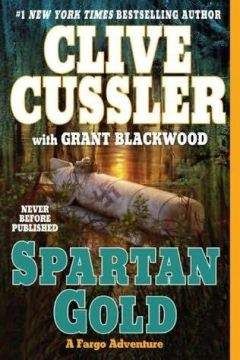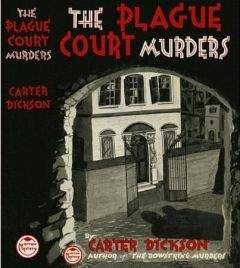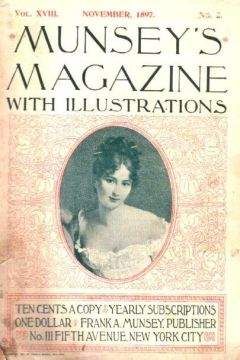Greg Iles - The Devils Punchbowl

Скачивание начинается... Если скачивание не началось автоматически, пожалуйста нажмите на эту ссылку.
Жалоба
Напишите нам, и мы в срочном порядке примем меры.
Описание книги "The Devils Punchbowl"
Описание и краткое содержание "The Devils Punchbowl" читать бесплатно онлайн.
With his gift for crafting “a keep-you engaged- to-the-very-last-page thriller” (USA Today) at full throttle, Greg Iles brings back the unforgettable Penn Cage in this electrifying suspense masterpiece.
A new day has dawned . . . but the darkest evils live forever in the murky depths of a Southern town.
Penn Cage was elected mayor of Natchez, Mississippi—the hometown he returned to after the death of his wife—on a tide of support for change. Two years into his term, casino gambling has proved a sure bet for bringing new jobs and fresh money to this fading jewel of the Old South. But deep inside the Magnolia Queen, a fantastical repurposed steamboat, a depraved hidden world draws high-stakes players with money to burn on their unquenchable taste for blood sport and the dark vices that go with it. When an old high school friend hands him blood-chilling evidence, Penn alone must beat the odds tracking a sophisticated killer who counters his every move, placing those nearest to him—including his young daughter, his renowned physician father, and a lover from the past—in grave danger, and all at the risk of jeopardizing forever the town he loves.
From Publishers Weekly
Iles's third addition to the Penn Cage saga is an effective thriller that would have been even more satisfying at half its length. There is a lot of story to cover, with Cage now mayor of Natchez, Miss., battling to save his hometown, his family and his true love from the evil clutches of a pair of homicidal casino operators who are being protected by a homeland security bigwig. Dick Hill handles the large cast of characters effortlessly, adopting Southern accents that range from aristocratic (Cage and his elderly father) to redneck (assorted Natchez townsfolk). He provides the bad guys with their vocal flair, including an icy arrogance for the homeland security honcho, a soft Asian-tempered English for the daughter of an international villain and the rough Irish brogue of the two main antagonists. One of the latter pretends to be an upper-class Englishman and, in a moment of revelation, Hill does a smashing job of switching accents mid-sentence.
She pulls back the door, revealing her blue-and-white jumper and eyes red from sleep or studying. Yeah. I was kind of scared, though. I heard the car stop, but then you didn't come in
I smile reassuringly and follow her inside, keeping the file pressed inside my shirt with my left hand while I dig for my wallet with my right. Having no idea how long I've been gone, I pull a couple of twenties and a ten from my billfold and give Carla permission to go with a wave.
Annie did all her homework, she says, slinging a heavy backpack over her slight shoulder. Papers written.
Did she do a good job?
Honestly? Carla laughs. That girl knows words I don't know. Id say shes about one year behind me, gradewise.
I feel the same way sometimes. Thanks again. What about this weekend?
Carlas smile vanishes. Um maybe some late at night, if you need me. But I'm going to be at the balloon races most of the time. They have some decent bands this year.
Okay. Any time you can spare, I'll pay you extra. This weekend is crazy for me.
She smiles in a way that doesn't give me much hope.
After closing the door behind Carla, I pour a tall iced tea from the pitcher in the kitchen fridge, carry it to the leather wing chair in my library, and spread the file open on the ottoman.
Golden Parachute Gaming Corporation pitched itself to the city as the Southwest Airlines of the casino industry. Capitalized by a small, feisty group of partners led by a Los Angeles entertainment lawyer, the company evolved a strategy of moving into secondary gaming markets and undercutting the competitions prices in every way possible, while simultaneously providing personable and personalized service, even to its less moneyed patrons. They run a phenomenally efficient operation, but whats opened many stubborn doors for them is their practice of forming development partnerships with the communities they move into, building parks, ball fields, community centers, and even investing in the development of industrial parks in some cities. Small town officials eat this up, and Natchez was no exception.
More than anything, though, Golden Parachutes success in penetrating our market came down to timing. They applied for their gaming license in the aftermath of Toyotas disastrous decision to build a new plant in Tupelo versus Natchez. Citizens were bitter about the lost jobs and ready to climb into bed with someone elsealmost anybody elseon the rebound. Golden Parachute already had successful casinos up and running in Tunica County, near Memphis, and Vicksburg, just sixty miles north of Natchez. With that track record, they had no trouble getting local heavyweights to lobby the state gaming commission to grant a fourth license for Natchez.
Bringing another casino boat to town had not been one of my goals when I ran for mayor. (In truth, none of the floating casinos are navigable vessels; they are barges built to look like paddle wheelers from the era of Mark Twain, but at five times historical scale.) My platform was reforming education and revitalizing local industry. But after considerable persuasion by the board of selectmen, I agreed to help close the casino deal. My reasons were complex: exhaustion in wake of the Toyota failure; a savior complex running on adrenaline after the depletion of my initial inspiration; disillusionment with my colleagues in government and with many of the citizens I was supposed to be serving. I was also frustrated that the board of selectmen were often divided along racial lines: four black votes and four white, with me the deciding factor. I voted my conscience every time, but few people saw it that way, and with every vote, I lost more allies on one side or the other. The only thing the board could agree on was any proposition that could bring money or jobs to their constituencies. And so Golden Parachute found a receptive audience for its sales pitch.
The problem, as it so often is with casinos, was site approval. Golden Parachute wanted to moor the Magnolia Queen on riverfront property donated to the city by a prominent Natchez familythe Piercesby means of a complicated trust. One stipulation of
that trust was that Pierces Landing never be developed as a casino or shopping mall while the matriarch of the family remained alive. Inconveniently for the selectmen, Mrs. Pierce had lived to the ripe old age of ninety-eight, and she was still, as the saying goes, as sharp as a tack. That tack lay directly in the path of the inflated giant that was the Golden Parachute deal.
My first instinct was to try to persuade the company to find another property, but the company wouldn't budge. Golden Parachute wanted the Pierce land, which was not only the last suitable river property within the city limits, but also the finest, barring the Silver Street spot taken by Lady Luck, the first riverboat casino in the state. Predictably, Golden Parachute began making noises about scrapping its plan to come to Natchez, and just as predictably the selectmen went into panic mode. I heard whispers about the new eminent-domain law, which allowed the government to seize private land for commercial development. I viewed this as one of the most anti-American laws ever put on the books, but my fellow officials did not share my feelings. Only Selectman Paul Labry stood with me in resisting this Stalinist move. Desperate to prevent the use of this tactic, Labry and I quietly went into action.
First we met with one of the Pierce heirs, whod graduated several years ahead of me at St. Stephens. He got us a copy of the actual document governing the trust, which few people had seen, outside the preservationists whod helped to write it, and the former mayor, whod died of lung cancer shortly after leaving office. To my surprise, I discovered that Mrs. Pierce possessed the authority to unilaterally revoke the clause preventing casino development. Disturbed by the boards increasing clamor to seize the land in question, I requested an audience with the grand old dame of Pierces Landing.
I met the distinguished lady in a conference room at Twelve Oaks Gardens, an assisted-living facility on the outskirts of town. As the granddaughter of an officer who had served under General J. E. B. Stuart at Gettysburg, Mrs. Pierce presided over an entire wing of the facility like a dowager empress. Her children had offered to take her in, but they had all settled in other states, and Mrs. Pierce preferred to remain in the city shed lived in all her life, and to be around people rather than to live in her mansion with round-the-clock nurses (or watchers, as she called them, as in Theyre here to watch me
have my final heart attack.) Mrs. Pierce granted me the audience because my father had treated her for more than thirty years, and because, she told me, she had enjoyed several of my novels on tape. At ninety-eight, she confessed with some embarrassment, her eyes were not what they had once been.
For the best part of an hour, I made the case for allowing a casino riverboat to be moored to her ancestral land. Early in our conversation, I discovered that Mrs. Pierce was neither a religious zealot nor a hidebound moralist. She confided that her father had hated gambling in all its forms, not least because his brother had lost a fine home and several hundred acres of farmland during a drunken poker game. She also mentioned that forty years earlier shed become aware of quite a bit of unpleasantness going on across the river, all related to gambling. One of her maids had actually been accosted on the road by men whod believed she was a prostitute. After realizing the basis of her objections, I pointed out that legalized casino gambling was far different from the illicit juke-joint operations she remembered. Gambling was now a legitimate industry of strictly regulated corporations that had brought prosperity to our struggling state. In making this argument, the numbers were all on my side.
Legalized casino gambling lifted Mississippis Tunica Countyonce the poorest in the United Statesfrom wretched poverty to wealth in fifteen years. A rural county serviced by open sewer ditches in 1991, Tunica has doubled its per capita income while going from two thousand total jobs to over seventeen thousand. Theyve invested $40 million in school improvements, poured millions into police and fire protection, built a sports arena, doubled the size of their library, and invested over $100 million in their road system. Statewide, the verdict on gambling is beyond question. Since 1992, the casino industry has come to provide nearly 5 percent of the states total tax revenue.
Despite Mrs. Pierces suspicion that vice is vice, whatever cloak it wears, I knew I was making headway when she told me that shed always chastised her friends who had blindly resisted change and felt they had hobbled the citys efforts to keep pace with the rest of the country. I knew I was almost home when she said softly that shed never imagined she would gaze down the hill that led to her
home place and see a neon casino sign. I promised her that if that was her final objection, she never would. The city would submit all of Golden Parachutes signage plans to her for approval. My mouth fell open when the old belle said she wouldn't carp about the sign if the company would devote one-half of 1 percent of its revenues from the Magnolia Queen to helping the citys underprivileged children. (Mrs. Pierce actually said colored, but her heart was in the right place.) In the end the company agreed to one-quarter of 1 percent, but that has amounted to $162,000 this year.
Two days after our meeting, Mrs. Pierce revoked the restrictive clause, and the Golden Parachute casino deal went forward. This made me a hero to the board of selectmen, but I felt like a heel. What I feel tonight is immeasurably worse. Mrs. Pierce died one month after revoking that clause, and if even half of Tims allegations are true, its a mercy that she did. The town at large never learned that it was I who opened the final gate to Golden Parachute, but that does not lessen my guilt. Tonight I feel more like I lifted our hoopskirt and pulled down our petticoats.
Nevertheless, dogfighting, drug use, and prostitution went on here before the Magnolia Queen arrived, just as they do in every city in America. The thesis that Golden Parachute is defrauding the city of millions of dollars in taxes is an accusation of a different order. This kind of crime, while not as disturbing on the surface as the others, is more harmful in the end, because it impacts every man, woman, and child in the city. If this allegation is true, then food is being stolen from the mouths of the children Mrs. Pierce wanted to help.
Yet this is the part of Tims tale that I find impossible to believe. I don't know enough about computers to judge the feasibility of distorting the casinos gross receipts, but even if such fraud were possible, the central question remains:
Why would Golden Parachute risk it?
Especially now.
Forty-six days ago, Hurricane Katrina roared over the floating gold mines that were the casinos at Biloxi and Gulfport and left behind something resembling Omaha Beach on D-day. A single storm wiped out a $100-million-a-month industry. But 150 miles to the northwest, in Natchez, the Magnolia Queen and her sister casinos simply battened down their hatches and rode out the winds and rain. The city sustained severe damage, and some areas were without power for more than a week, but the Magnolia Queen was running on her gene ators the day after the hurricane. And no sooner had some refugees gotten settled into the shelters at the local churches and school gymnasiums than they found time and means to get down to the river and gamble away what little money theyd brought with them (or had been given by the churches). That image brings a sick feeling to the pit of my stomach, but more than that, it tells me that the partners of Golden Parachute Gaming would have to be insane to risk their gaming license to pick up a few extra million when God is going to dump ten times that amount into their coffers over the next year.
Moreover, until tonight, the company has given me no reason to regret bringing them to town. Theyve paid their taxes promptly and followed through on the community investments they promised. I enjoy cordial relations with their general manager, an Englishman named Sands who works the city with the professional charm one would expect from a manager in Las Vegas, not Mississippi. The only part of Golden Parachute thats ever rubbed me the wrong way is their chief of security, a coarse Irishman named Seamus Quinn, who looks and talks like an overdressed thug from the London underworld. But Sands vouched for Quinns credentials, and I decided my problem with the security man was more a matter of style than anything, like my problem with some cops. The bottom line is that I've watched Golden Parachute operate without incident in every market they serve. So I find myself at a loss when trying to reconcile Tim Jessups allegations with what I know of the company.
My eyes are blurring with fatigue near the end of the file, but I blink myself awake when I find a note I wrote in the margin of one document over a year ago. In red ink, on a copy of Golden Parachutes original application for its gaming license, I see the words
Voting trust. % voting power reflect actual ownership?
Something Tim said tonight makes this note resonate within me, and suddenly my only serious suspicion about the original Golden Parachute deal returns to me.
By law, anyone who plans to own more than 5 percent of a casino in Mississippi must submit to a comprehensive investigation of his past. This is no simple background check; no aspect of the prospective owners life is off-limits, and the subject must pay for the
investigation himself. The gaming commission maintains a full staff of investigators for this purpose, and they will not hesitate to fly to the Philippines to subpoena the contents of a safe-deposit box if they deem it necessary to determine the suitability of an applicant. In fact, most rejections of gaming applications have been based on the unsuitability of investors.
During the Golden Parachute deal, I learned from talking to an old law school classmate that there is a way around this statute. Lawyers can establish a voting trust, which may own all or part of a casino. Behind such a trust lies a group of investors with a private understanding of who owns what percent of the company, but on paper 95 percent of the voting power is held by the one partner who has nothing to fear from a background investigation. The other partners are named in the application, but since on paper they own only the remaining 5 percent between them, they are not subject to similar scrutiny. A neat system. But what happens, I asked my friend, if the squeaky-clean front partner decides to actually start using his voting power to make the decisions? My friend laughed and said that because most of the five percent partners tend to have names that end with vowels, this rarely happens. When it does, the front partner usually winds up inside a fifty-five-gallon drum in a convenient body of water.
Golden Parachute Gaming is owned by a voting trust called Golden Flower LLC. Flipping to the back of the application, I see that it was signed only by the front partnerthe L.A. entertainment lawyerand not the five percenters. What stuck in my mind tonight was Tims comment about a Chinese billionaires son flying in from Macao to fight his dog in Mississippi. Why, I wondered, would a billionaire come so far to do something he could easily do in Macao? Was he simply seeking new competition? After all, for a man with a private jet, distance means little. But I'm almost sure I remember that two of the five percent partners in Golden Parachute were Chinese. By the time I learned this, the deal was so far along that I gave it little thought. I simply made this note in the margin and moved on, caught up in the next days business. No one wanted to rock the boat by then, not even, apparently, the gaming commission. But tonight, I realize, I need an answer to the question I wrote in this margin so long ago.
Подписывайтесь на наши страницы в социальных сетях.
Будьте в курсе последних книжных новинок, комментируйте, обсуждайте. Мы ждём Вас!
Похожие книги на "The Devils Punchbowl"
Книги похожие на "The Devils Punchbowl" читать онлайн или скачать бесплатно полные версии.
Мы рекомендуем Вам зарегистрироваться либо войти на сайт под своим именем.
Отзывы о "Greg Iles - The Devils Punchbowl"
Отзывы читателей о книге "The Devils Punchbowl", комментарии и мнения людей о произведении.
























